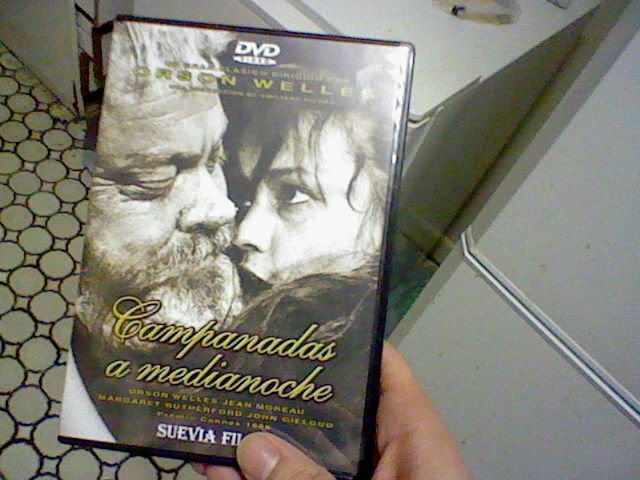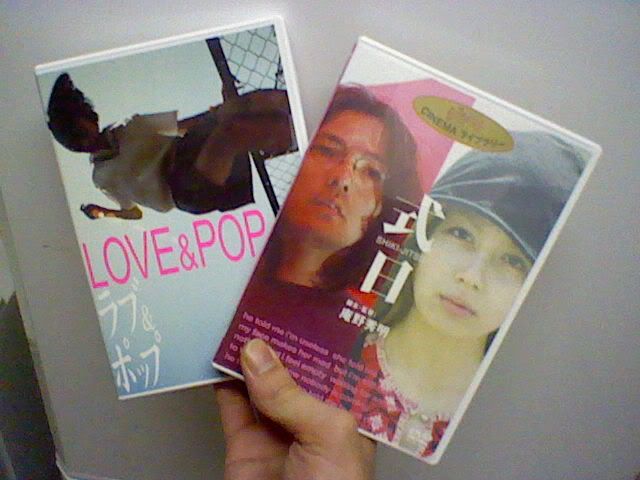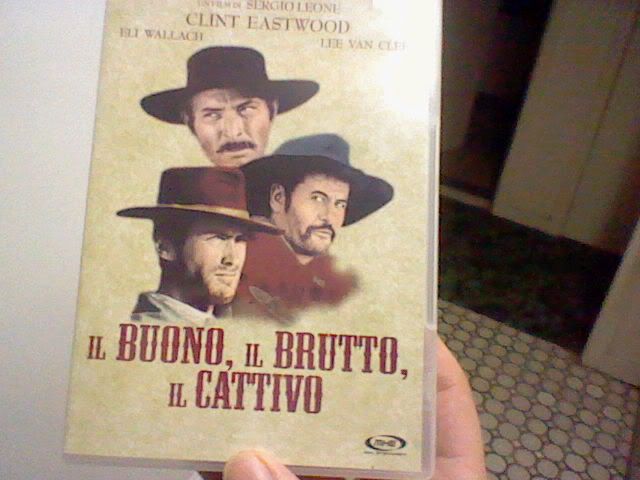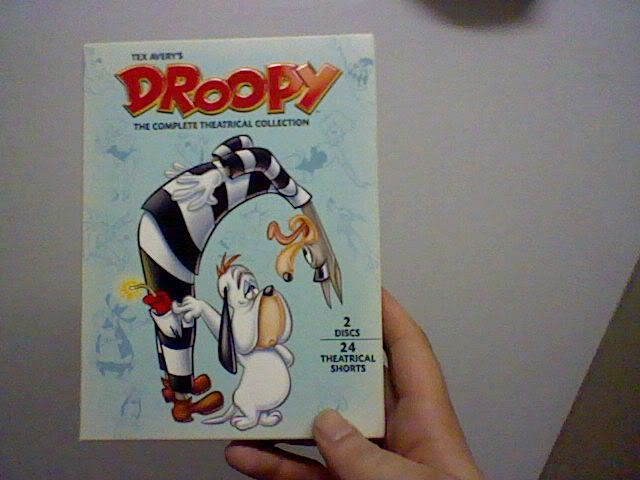Warning: this post may contain spoilers to the films "Human Nature", "Being John Malkovich", "Adaptation", "Confessions of a Dangerous Mind", "Eternal Sunshine of a Spotless Mind" and "Synechdoche New York".
I re-watched this film just now. I can't really say what my thoughts are, they're too complicated to put into words, I don't think my head has really wrapped itself around this film enough. In the fashion of the film itself, or in the fashion of Charlie Kaufman's beyond-the-4th-wall mind, I will share my thoughts about the thoughts of the film.
Because I see the film itself about being a film in itself. One thing Kaufman himself pointed out is that he was interested in dream-logic, which this film contains, yet I don't think it's all just one big dream. I see this film as being a story told in dream-language. It goes back to the old analogy that the cinema is a portrayal of a dream. Think going to the cinema, past all the trailers and commercials, the lights dim and it's totally black in the room (ignore the glowing exit sign down the bottom corner, or do your best to), this is like closing your eyes and then suddenly without noticing a moving picture with sound plays before you in your mind. This moving picture seems to have a story, familiar characters that you know or feel, but it doesn't play like real life. Time is not linear, people don't act the way you expect or sometimes they are exactly what you expect, the logic is nonsense but it doesn't mean it's not logical. When the film ends the lights go up and you stretch and feel like you've just woken, but the story plays through your mind and the more you think about it the more it gets weirder and weirder. The great thing about films opposed to dreams is that you can watch them over and over, so that if you forget something you can re-visit it again.
In "Synechdoche New York" the story is like a dream, but it's not the main character, Caden, who is dreaming, it's you - the viewer. That's what I'm trying to say.
The one thing I really love about watching this film is that it's completely the vision of Charlie Kaufman. This story wouldn't have worked if he didn't direct it. Everything about the film is complicated, like it complicates complexity and turns into itself to make the complex complications multiplying by its own value. I will talk about turning points later. As for what I'm talking about now, I'd like to explore Charlie Kaufman's other works.
I usually hate to admit that to understand a masterpiece you will usually have to understand the artist who created it. I hate to admit it because it's just too much work. I also like the idea of separating myself from "who done it" syndrome so I can try to appreciate the piece (in this case the film) from the point of view from someone who has no idea what it is, what it's about and who made it. I like that feeling of being amazed for the very first time. But then there's that part of me that says it's not enough, I need to know more and understand it more.
I've been a follower of Charlie Kaufman since "Being John Malkovich". I thought that movie was great, especially how you can watch it again and pick up things you didn't notice before but were of great importance to the story. I see "Being John Malkovich" as a self-contained movie, it works without working against anything else. It was a couple years later when I heard about "Adaptation". I saw that film and then I saw it again. I later found it on DVD and watched it plenty times more. It was in this film that Charlie Kaufman wrote himself into his own story, and Susan Orlean's story. Both "Being John Malkovich" and "Adaptation" were directed by Spike Jonze, which were his first two feature films. "Adaptation", as opposed to "Being John Malkovich", was not a self-contained story. It contained references to Charlie Kaufman's own (split?) personality, it even contained behind-the-scenes of "Being John Malkovich" as a reference-point of who Charlie Kaufman is. It is a story about him adapting a book, "The Orchid Thief", then we see the actual film-adaptation of the book (which we know Charlie is working on), but then it turns around and Charlie's fictional twin brother, Donald, decides to finish the adaptation by involving himself and Charlie in a thriller ending that breaks the rules by following them, which in turn is breaking them. It doesn't make sense in words, but happened in the film and that's the only way to accept it. Watching these films I can't help but notice the creative influence of Spike Jonze when it comes to this strange deadpan realism of Kaufman's fantastic psychological experience.
I'll briefly touch on George Clooney's "Confessions of a Dangerous Mind". In this one Charlie Kaufman was commissioned to adapt a book by Chuck Barris, infamous TV show producer and host of the original "Gong Show", where he confesses that he was really leading a double life as a hired assassin working for the CIA. A story like this seems right up Kaufman's alley, riddled with a confusion of truth and fiction, and easily complex storytelling. But George Clooney and Kaufman didn't really have too much communication, if any, and the film turned out to be more to Clooney's vision more than Kaufman's. I still think it's a great film, as a George Clooney project, and Charlie Kaufman's presence is vaguely there through some of the writing and humour.
Now we have Michel Gondry's side of Charlie Kaufman. Kaufman's first adapted screenplay, "Human Nature", was relatively obscure compared to his other stories. From the get-go "Human Nature" was an already complex narrative, starting as a story being told by a man who is dead. What we eventually get is a story being told from three different viewpoints, piecing together a whole story about a man who grew up in the wild, was taken out of the wild by a nature-loving woman and a nature-hating scientist. The scientist decides to use this man as a subject to prove that manners and sophistication can be taught to the most primitive beast, but we learn from an alternative viewpoint that the man was only willing because he wanted to impress women and get laid. Thus we have sophistication as being a result of primitive desire, which is also prevalent in the nature-woman's character to impress the scientist. My favourite line is "Words are evil!". The other Gondry-Kaufman project is of course "Eternal Sunshine of a Spotless Mind". I'll briefly try to explain the complex narrative of this one: We start at the conclusion of two people who don't know each other but feel like they do because they get along so well, then we start from the start, when these two people actually
did know each other but they broke up, it's important to note that we are in the
memories of the main character, but this isn't obvious until we're up to the point where the procedure of his memories being erased begins within his memories. At this point his memories start moving backwards, but outside his mind there is also the forward-narrative of the people erasing his memories. The people have trouble along the way because when he discovers that he doesn't want to continue the procedure (in his mind), he starts to complicate things by hiding in points of his past that are buried deep down and can't be tracked. There's an important subplot with the people carrying the procedure which leads to the important discovery when we're at the conclusion (continuing from the beginning of the movie) and the ultimate answer to all the problems: "Yes".
I don't know why I even tried.
Now I'd have to talk about Michel Gondry's influence on these films. I've been a fan of some of his most iconic music videos, and his "how did they do that? That must of been hell to pull off" experimental techniques in film. One in particular is Kylie Minogue's "Come Into My World" music video. I can see that Gondry also likes to play with dream-logic. Most of his work is usually set within a dream or memories of the main character(s). He has made films that he wrote and directed himself. I've only seen "Be Kind Rewind" which was a truly fascinating experience. I see Gondry as more of a playful film-maker, whereas Spike Jonze is more of a hybrid of deadpan realism and fantasy, as if they were the same thing.
Now we come to "Synechdoche New York", a film written
and directed by Charlie Kaufman. My first viewing of this film I felt he had a style that might have been cross-between Michel Gondry and Spike Jonze, but then afterwards I realised that it's really not like that at all. It's all Kaufman. There are so many things so subtle and complicated that you're forced to view it multiple times, even freeze-frame it and notice things that you will only notice by doing that. I would think only Charlie Kaufman could put subtle hints into backgrounds/foregrounds, even if they're out of focus, that you would notice important plot points. The stalker who eventually plays Caden in his play, is the most obvious one. And then there are the turning-points, as I mentioned earlier. Every scene seems to have a turning point, which turns into itself but also moves the story forward. Imagine a wheel turning and moving along the ground, and then a wheel inside the wheel, turning as caused by the overall turning of the larger wheel, and another wheel inside the smaller wheel, etc. The wheel is an analogy of the plot.
Here are a couple examples still fresh in my mind: When Caden is at the after-party of his opening-night of Death of a Salesman, he talks with Hazel and she suggests they get stoned. He says he gets "bothered" when he gets stoned so he has to turn her down. He gets home the next morning and finds his wife Adele and her friend Maria have gotten stoned, they say they can't wait to see the play but he seems to take it with a grain of salt (because they're stoned). They do see the play that night and Adele hated it because Caden borrowed something that wasn't his so it couldn't be entirely truthful to him. Caden doesn't defend himself, even so the play turned out successful, but he decides to make something original and truthful to himself. There's always this constant struggle between people not doing things and other people doing that very thing, turning themselves and it creates a self-perpetuating momentum. Another example is how Caden decides to assume the role of an elusive "Ellen", the cleaning lady of Adele's apartment, then in his play he casts a woman to play Ellen based on a portrait painted by Adele. Meanwhile Caden mentions when he has an affair with Tammie (an actress in a whole other complex twist and turn in the story) that he thinks if he were a woman he'd be better at it than being a man. In the play Caden decides he needs a new actor to play himself, the woman playing Ellen convinces him that she can play the role, but then a new turn happens when Caden decides he needs time off, but the role of Ellen (who he originally was in the real world) is open and that he will play her. So now the role of Caden is played by a woman and Caden is playing the role of a woman. It is after this turn that the whole story is now about Ellen, a woman who never really existed because it was Caden all along, but Ellen is being played by Caden, who is being directed by the woman who was acting as Ellen but is now acting as Caden. At this point I think the wheel has now turned into a spiral but I still haven't quite wrapped my head around it.
Another aspect of Kaufman's directing is the dream-logic, that the story isn't really a dream but it's not really real either. It's like it's self-conscious of being a film. I also kept trying to analyze Kaufman's directing style but I couldn't help myself being so immersed in the story I had to actually snap myself out of it from time-to-time, only because I was trying to watch it objectively and not really trying to enjoy it as it is, which I'll do once I get all the pieces put together. Some examples of the dream-logic are quite obvious: the house on fire, the dark novel written by a four-year-old, Caden constantly seeing himself used as images in commercials and cartoons and of course the heavy time-jumps between scenes, among other things. My favourite example is one I had to freeze-frame, when it shows a close up of the book that Caden is reading which was given to him by his therapist. The therapist's voice is narrating the words, which don't see, but when we do see the words I noticed there is a paragraph of absolute nonsense, either that or way too complicated for anyone to understand. This is the kind of dream-logic where you are reading something, but the words are always changing when you read them, and they don't make sense the more you read them.
My final point on Charlie Kaufman's directing style is the structure. This is more relating to the turning wheel analogy. This isn't a film with "acts" or "set pieces". You could say there are major plot sections, but each of them roll into each other with these turns and twists, each happening in every scene. This is not a story for people who want simplicity and clarity (which is why we have "acts" and "set pieces"), but at the same time there is no reason why a film like this shouldn't be made, especially if it has something important to share.
There are more things to talk about in Kaufman's style, like his visual complexities in every frame, every scene, but I couldn't begin to describe them unless I had accompanying screen-shots, which I don't have on me at the moment.
When I go through all the previous works of Charlie Kaufman, I also notice how they seem to be from a researcher/writer point-of-view. "Human Nature" had the scientist, "Being John Malkovich" had the puppeteer (a form of story-telling), "Adaptation" had Charlie Kaufman himself writing a screenplay, "Confessions of a Dangerous Mind" had the confessions written by Chuck Barris and "Eternal Sunshine" had a poet, although I can't remember what Jim Carey's character did for work..but that's besides the point. It's amazingly appropriate then that Charlie Kaufman's directorial debut is a story about a theater
director. Especially with some scenes where he's directing actors, saying things like "the audience should be conscious of you being a young actor who is aware that he's not going to make it by the end" (in referring to the performance of the actor playing an older man in "Death of a Salesman"). Or when he's directing in his own play he says "Now you two are having an affair off-set, which isn't good for the show. Keep in mind you're actors playing actors. And you (to actor playing a cameraman), you're not just filming the scene, you're
in the scene, so act like you're
in the scene!"
Charlie Kaufman has worked his way from writing about writers to directing a story about a director, directing an actor who's playing a director (both inside and outside of the story, take your pick).




